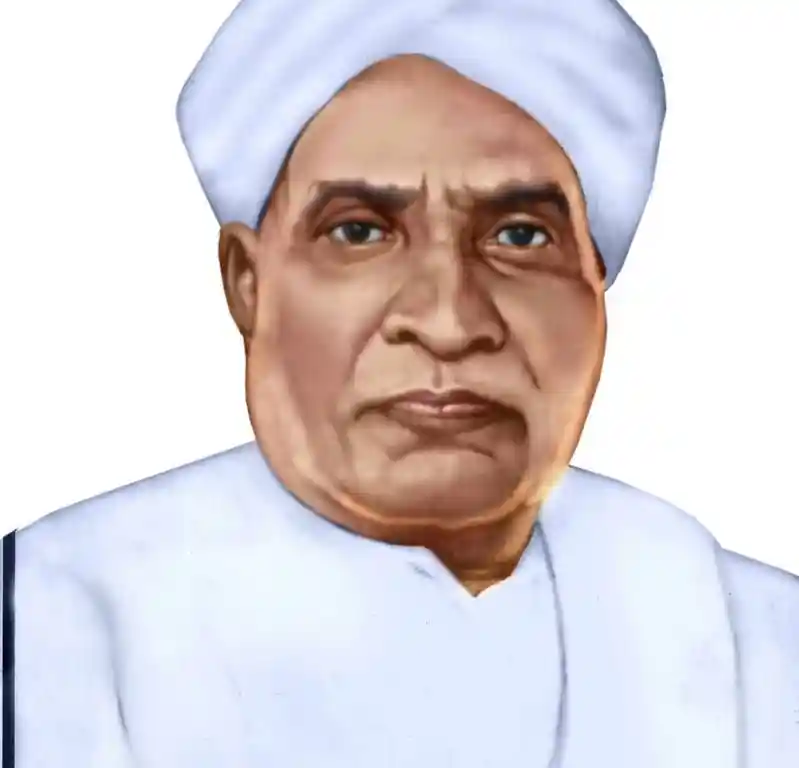The Beauty of Colloquial Telugu
A social reformer, historian and linguist, Gidugu Venkata Ramamurthy is the father of the modern Telugu language. During a time when Sanskritised Telugu prevailed, he fought tirelessly to simplify and make Telugu accessible to the masses.

The Father of Modern Telugu. Image Source: Public Domain
Every year on 29th August the Telugu Language Day is celebrated in the state of Andhra Pradesh. Aimed for the betterment of this language, the government organizes funds and presents awards. Modern Telugu, the version familiar to us now, is used widely by the people of India. However, there was a man behind its appeal to the masses and responsible for its simplification, and this day is observed in honour of his birth anniversary.
Gidugu Venkata Ramamurthy’s story began in Parvatalapeta, Srikakulam near Vamsadhara River on the border of Orissa in 1863. Akin to many protagonists, Gidugu too met with an unfortunate twist of fate at a very young age. Barely 12 years old, his beloved father passed away, throwing his family into the depths of despair. After troublesome years of study, he finally passed his matriculation and began his career as a teacher.
Ramamurthy found his passion in history, but more so in philology. While coming across ‘Sasanas’ tablets, he realised he was unable to read the complex language written on them. After studying various language scripts and books, he went on to decipher the ‘Sasanas’, but this also unlocked his path in the near future.
While stumbling across complex Telugu loaded with Sanskrit diction of the kavyas, he observed that the spoken and written language on the ‘Sasanas’ differed significantly, making the study of the latter in schools and colleges hamper Telugu speaking skills. In addition to this, the written language catered to the upper classes of the society, marginalizing tribes and commoners.
Recognizing that Telugu wouldn’t be able to survive due to its inaccessibility, complexity and inefficiency, he pledged to reform this dying language and make the spoken form the medium of instruction.
However, the road to reformation wasn’t easy as he clashed with the orthodox Sanskrit-educated pundits who believed in the sacredness of their written script. Nevertheless, Ramamurthy’s persistence and dedication led him to his victory, and sishta vyavaharika (standard, current, and spoken language) became widely accepted.
Throughout his battle, Gidugu fought for tribal communities like the Savaras by working effortlessly for the development of their languages. In fact, while searching for the origins of their language by travelling deep into forests, he was followed by uninvited nuisances which infected him with Malaria. His treatment with quinine ultimately rendered him deaf! But such adversities were no match against our determined Gidugu.
According to Pulidindi Maheswar, “Gidugu is the thunderbolt that struck classical language in the head. He was the leader of the colloquial language revolution.”
Telugu speakers owe a lot to this man for making their medium of instruction accessible to all. His countless efforts brought out the beauty and lucidity of colloquial language and his contributions will never be forgotten.
He did not stop until he provided the Savaras a language with a simple script and prepared easy-to-learn lexicons for everybody. His immense contributions bestowed him the titles of “Pidugu” meaning thunderbolt in Telugu and “Rao Saheb” and “Kaisar-i-Hind” by the British.
Due to his constant efforts, modern Telugu saw a rise in its usage on all platforms throughout the first half of the 20th Century. From it gaining support to articles and periodicals being published in the spoken language, current Telugu was born and its credit goes to none other than our Gidugu Venkata Ramamurthy.

The Savaras Tribe; Image Source: India Facts

A tribute to Gidugu Venkata Ramamurthy; Image Source: Latestly


